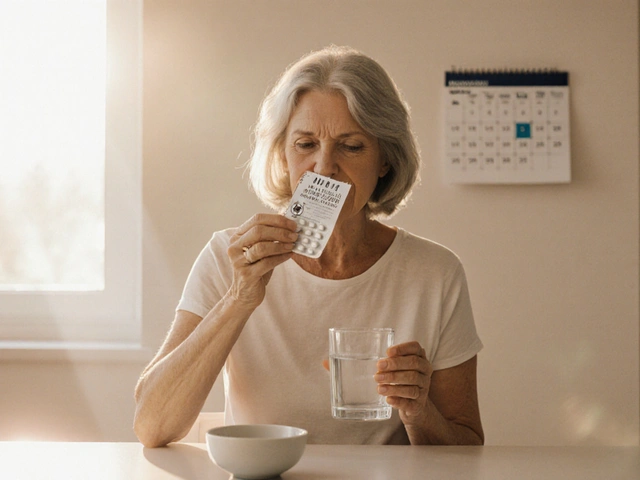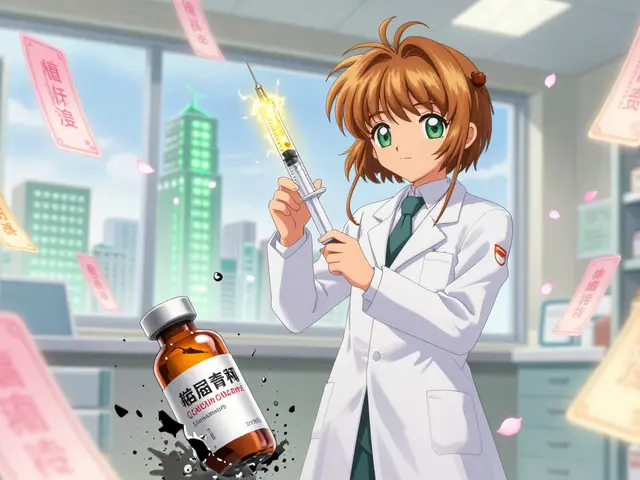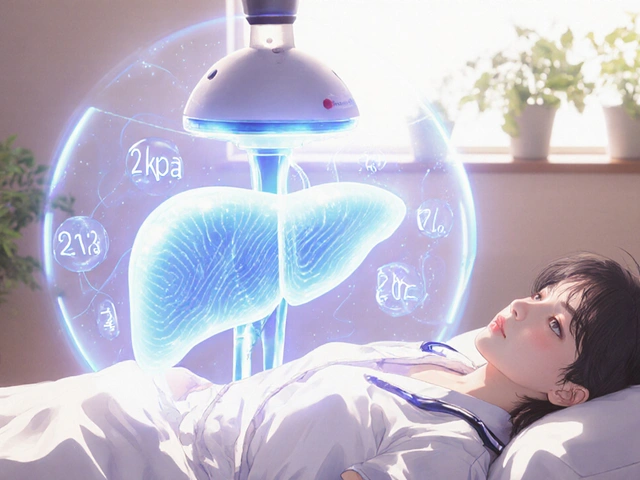Experiencing a burning sensation during intercourse can be distressing and may affect your intimacy. Many people go through this, and it's important to understand the potential reasons behind it and how to seek relief.
This common issue can stem from a variety of causes, ranging from medical conditions to psychological factors. By pinpointing the cause, you can take steps to remedy the situation and enjoy a more comfortable and enjoyable sexual life.
- Common Causes
- Medical Conditions
- Psychological Factors
- Preventive Measures
- Home Remedies
- When to See a Doctor
Common Causes
Understanding what might cause a burning sensation during intercourse can help lead to effective solutions. There are several reasons why this discomfort may occur, ranging from simple irritations to more serious medical conditions.
One of the most frequent culprits behind this troubling symptom is inadequate lubrication. When natural lubrication is insufficient, friction during intercourse can lead to a burning sensation. This issue often arises in women going through menopause due to lower estrogen levels, which can exacerbate vaginal dryness. Similarly, some younger women may not produce enough natural lubrication due to stress or insufficient foreplay.
"Understanding the underlying cause is key to finding the right treatment. Many women experience pain during sex at some point in their lives, and there are usually simple and effective ways to manage it," says Dr. Heather Jeffcoat, a renowned pelvic health specialist.
Another common cause is infection. Bacterial vaginosis, yeast infections, and sexually transmitted infections (STIs) like herpes or trichomoniasis can all cause burning sensations. These infections often come with additional symptoms such as unusual discharge, itching, or sores. It is crucial to consult a healthcare provider if you suspect an infection so that appropriate treatment can be administered.
Allergies or sensitivities can also be to blame for this discomfort. Some people may have allergic reactions to condoms, lubricants, or feminine hygiene products. Ingredients like latex or certain chemicals can irritate sensitive genital skin, leading to a burning feeling during intercourse. Switching to hypoallergenic products can sometimes provide relief.
Certain dermatological conditions that affect the vulva, such as lichen sclerosus or psoriasis, can also be a source of burning pain. These conditions often cause thinning, irritation, or sclerotic changes in the skin, making sexual activity painful. Proper dermatological care is essential in these cases.
Hormonal changes, particularly those associated with pregnancy, postpartum, and breastfeeding, can also affect vaginal comfort. These hormonal shifts can result in dryness or changes in vaginal pH, contributing to painful sensations during sex. It's common and often resolves with time, but consulting a healthcare provider can help manage symptoms better.
Finally, certain medications can have side effects that lead to genital dryness or irritation. Antihistamines, antidepressants, and some birth control pills can reduce natural lubrication. If you suspect your medications are causing discomfort, discussing alternative options with your doctor might be helpful.
Identifying the root cause of burning sensations during intercourse is crucial for finding effective solutions. Whether it’s a straightforward issue like lubrication or a more complex condition, understanding the cause can lead to better management and a more fulfilling sex life.
Medical Conditions
One of the primary culprits behind a burning sensation during intercourse is an underlying medical condition. Several health issues can contribute to this discomfort, and understanding them is the first step towards finding a solution. Each condition affects the body differently, necessitating tailored approaches for treatment and management.
First on the list is vaginal infections. Yeast infections, bacterial vaginosis, and sexually transmitted infections (STIs) like herpes can cause significant irritation and pain. These infections often bring about inflammation and sensitivity, making sexual activity uncomfortable. Diagnosis can typically be confirmed with a simple examination or lab tests performed by a healthcare provider.
Catherine Feuillette, a medical expert, explains, "Addressing infections promptly with appropriate medication can alleviate symptoms and prevent recurrence, highlighting the importance of seeking medical attention if you suspect an infection."
Another common issue is vulvodynia, a chronic pain syndrome affecting the vulva. Women with vulvodynia often experience burning, stinging, or rawness, which worsens during intercourse. The precise cause of vulvodynia is still unknown, but potential factors include nerve injury, hormonal changes, and genetic predisposition. Managing this condition may require a multi-faceted approach involving medications, physical therapy, and lifestyle changes.
Next, there's the issue of menopause and hormonal changes. Decreased estrogen levels during menopause lead to thinning and drying of vaginal tissues, a condition known as vaginal atrophy. This can cause a burning sensation during sex due to reduced lubrication and increased friction. Hormone replacement therapy or topical estrogen treatments can often help alleviate these symptoms and improve sexual comfort.
Urinary tract infections (UTIs) also deserve mention. Though commonly associated with painful urination, UTIs can extend their discomfort to sexual activity. The inflammation around the urinary tract can influence the sensations felt during sex, leading to a burning feeling. Like other infections, UTIs require prompt medical treatment, usually with antibiotics.
Pelvic Inflammatory Disease (PID)
Pelvic Inflammatory Disease (PID) is another notable condition impacting women's sexual health. PID results from untreated infections like chlamydia or gonorrhea and affects the reproductive organs. It can cause intense abdominal pain, fever, and an unpleasant burning feeling during intercourse. Early diagnosis and aggressive treatment are crucial in preventing long-term damage to reproductive organs, which can have severe implications including infertility.
Endometriosis is a more complex condition that extends beyond the reproductive organs. Women with endometriosis have tissue similar to the lining inside the uterus growing outside of it, leading to pain and sometimes a burning sensation during sex. Endometriosis is often managed with medication, hormone therapy, or surgery, depending on its severity.
Lastly, skin conditions like eczema or lichen sclerosis affecting the genital area can contribute to discomfort during sexual activity. These conditions cause patches of skin to become thin, white, and extremely sensitive. Given the delicate nature of the genital skin, any pre-existing skin condition can aggravate pain and burning sensations during intercourse. Specialized treatments and skin care routines play a significant role in managing these issues.
Recognizing and addressing these medical conditions early can help mitigate the burning sensation during intercourse. Consulting with healthcare providers and exploring suitable treatments can pave the way for a healthier and more fulfilling sex life.

Psychological Factors
The human mind plays a critical role in the way we experience physical sensations, including during intercourse. Psychological factors can greatly impact one’s physical comfort and contribute to a burning sensation during sex. When stress and anxiety take hold, they can manifest in various physical symptoms, causing discomfort or pain in different parts of the body, including the genital area. Stress can cause muscle tension, which may lead to a burning feeling during intercourse. Anxiety over sexual performance or relationships can tighten pelvic muscles, magnifying sensations of pain.
Trauma is another significant contributor. Past experiences of sexual abuse or trauma can echo into one's present sexual life, creating subconscious anxiety and tension that intensifies physical discomfort. Memories and emotions from these experiences may resurface, causing the body to react with a burning sensation as a defensive mechanism. Seeking therapy or counseling can be beneficial in these situations to help process and heal from past traumas.
Psychosexual issues, including fear of intimacy or negative body image, can also play a role in sexual discomfort. Feeling insecure or uncomfortable in one's body can cause involuntary tensing of muscles and affect natural lubrication, leading to pain and burning. Conscious efforts to cultivate a positive and loving relationship with one's body can alleviate some of these issues over time.
Depression can dull the body's response to pleasure and increase sensitivity to pain. The mood swings and emotional tolls brought about by depression can lower libido and sexual satisfaction, causing discomfort during intercourse to be more pronounced. Managing mental health through therapy, medication, or other means is essential for improving sexual health and overall wellbeing.
Communication with a partner is vital. Emotional disconnection or unresolved conflicts can create anxious or stress-filled environments that affect sexual experiences. Being open about feelings and concerns can foster empathy and intimacy, which can reduce anxiety and physical symptoms.
"Understanding the intertwining of psychological and physical responses in sexual health is essential for a holistic approach to treatment," says Dr. Emily Morse, a renowned sexologist.The importance of a comfortable and stress-free environment cannot be overstated. Practices like mindfulness, meditation, and yoga can help manage stress and reduce anxiety, promoting relaxation and enhancing physical comfort during intercourse. Creating a space that feels safe and loving allows the freedom to enjoy intimacy without the interference of psychological stressors.
Preventive Measures
Understanding how to prevent a burning sensation during intercourse can be life-changing. Simple steps and habits can make sex more comfortable and fulfilling for both partners. Let’s look at a few crucial measures that can help.
First, lubrication plays a critical role in reducing friction that often leads to discomfort. Invest in high-quality, body-safe lubricants. It’s important to know that water-based and silicone-based lubricants are very effective and less likely to cause irritation.
Hydration is another preventive measure that’s often overlooked. Staying well-hydrated ensures that your body's tissues, including genital tissues, are adequately moisturized, reducing the risk of dryness and irritation. Drink at least eight glasses of water daily, and increase your intake if you're physically active or live in a hot climate.
A good hygiene routine is essential. Make sure to cleanse your genital area with mild, unscented soap and water. Avoid products with harsh chemicals and fragrances as they can disrupt the natural pH balance and lead to irritation. After cleansing, ensure the area is thoroughly dried.
Wearing breathable, natural fabric underwear like cotton can also reduce the chances of developing irritation. Synthetic fabrics trap moisture and heat, which can create a breeding ground for bacteria and fungi, leading to infections that may cause a burning sensation.
Sometimes, taking a break from sexual activity can help. If you've recently experienced any discomfort, allow your body time to heal before resuming intercourse. Using this downtime to consult with healthcare providers or research more on maintaining vaginal health can be highly beneficial.
If you or your partner have a sexually transmitted infection (STI), it is crucial to seek treatment and complete it fully before engaging in intercourse again. STIs are a common cause of pain and discomfort during sex. Use protection consistently to prevent the transmission of STIs.
Ensuring open communication with your partner about discomfort experienced during intercourse can be empowering. Adjusting the speed or type of sexual activities can make a significant difference. Partners need to work together to ensure mutual comfort and satisfaction.
According to Dr. Sarah Jarvis, "open dialogue about sexual concerns helps in understanding each other's needs better and finding practical solutions that can significantly enhance sexual wellbeing."
Lastly, engaging in regular Kegel exercises strengthens the pelvic floor muscles. Stronger pelvic muscles can dramatically improve sexual health, reducing discomfort during intercourse. These simple exercises can be done anywhere and at any time, making them an easy addition to your daily routine.

Home Remedies
When dealing with a burning sensation during intercourse, sometimes the best solutions are the simplest ones you can find at home. It's essential to approach these remedies with patience and care, as they can vary in effectiveness depending on the individual. Many people begin addressing this discomfort by adjusting their personal hygiene routines. For instance, ensuring both you and your partner wash your genitals with mild, unscented soap and water before and after intercourse can minimize irritation. Harsh soaps and fragrances can often exacerbate the issue.
Lubrication is another crucial factor to consider. A lack of natural lubrication can lead to friction and the uncomfortable burning feeling you might experience. Try using a water-based lubricant, which is generally well-tolerated and doesn't contain harsh chemicals. Avoid using oil-based lubricants as they can cause condom breakage and are harder to clean. Many couples find that adding a lubricant significantly reduces discomfort and makes the experience more pleasurable.
Natural remedies can also come into play. Aloe vera gel, known for its soothing and healing properties, can be applied to the affected area to relieve the burning sensation. Make sure you use pure aloe vera gel without added fragrances or alcohol. Coconut oil, which has antimicrobial properties, is another alternative. Lightly applying coconut oil can create a soothing barrier that reduces friction.
Diet and hydration play an underlying role in sexual health as well. Consuming foods rich in omega-3 fatty acids, such as fish and flaxseed, can reduce inflammation, promoting overall genital health. Drinking plenty of water ensures that your body remains well-hydrated, which can positively impact natural lubrication levels. Additionally, avoiding spicy foods and acidic beverages before intercourse may prevent any flare-ups or irritation.
Wearing breathable and loose-fitting underwear made of cotton can also reduce the risk of irritation and discomfort. Synthetic fabrics can sometimes cause sweating and friction, which might lead to a burning sensation. Cotton allows the skin to breathe and reduces moisture build-up in the genital area, which can help maintain a comfortable environment.
Listen to your body during intercourse. If you start feeling any discomfort, stop immediately. Sometimes, taking a short break or changing positions can naturally alleviate the issue. Communication with your partner is key. Talking openly about what feels right and what causes discomfort can help both of you find a rhythm that works without causing pain.
"Sexual health is a crucial aspect of overall well-being, and it's important to address any discomfort openly and thoughtfully," says Dr. Emily Morse, a renowned sexologist.Balancing stress levels cannot be overstated. Stress often exacerbates physical symptoms, including those affecting sexual health. Techniques like yoga, meditation, and deep breathing exercises can help reduce stress, potentially diminishing the sensation of burning during intimate moments. Regular physical activity, in general, can improve circulation and promote a healthy libido.
If home remedies do not bring relief, it may be time to explore other options. Sometimes, persistent symptoms indicate underlying conditions that require professional attention. Keeping a symptom diary and noting what seems to help or worsen the discomfort can provide valuable insights when discussing the issue with a healthcare provider.
When to See a Doctor
Experiencing a burning sensation during intercourse can be uncomfortable, but how do you know when it’s time to see a doctor? Understanding the signs that indicate a professional consultation is necessary can help address the underlying issues promptly and improve your sexual health.
If the burning sensation is persistent and doesn’t improve after trying home remedies and over-the-counter treatments, it’s a good idea to schedule a visit with your healthcare provider. Persistent pain can be a signal of underlying medical conditions that require specific treatments. Repeated episodes without any clear cause or relief warrant professional advice.
Another indicator that it’s time to seek medical advice is if the burning sensation is accompanied by other symptoms, such as unusual discharge, a foul odor, fever, or intense itching. These could be signs of infections like yeast infections or bacterial vaginosis. Additionally, sexually transmitted infections (STIs) often present with a combination of symptoms, and early detection is crucial for effective treatment and preventing complications.
If the discomfort affects your ability to enjoy intimacy or impacts your relationship, discussing the issue with a doctor is important. Sexual health is a significant aspect of overall well-being, and any hindrance should be addressed promptly. It’s normal to feel a bit embarrassed about such topics, but healthcare professionals are trained to handle these situations with sensitivity and care.
In some cases, the burning sensation might be related to dermatological conditions or allergies to products like condoms, lubricants, or soaps. A doctor can help identify these triggers and suggest hypoallergenic alternatives or specific treatments to alleviate the discomfort. Sometimes, underlying chronic conditions such as diabetes or hormonal imbalances can manifest as burning during intercourse, making a medical evaluation crucial.
Don’t overlook emotional and psychological factors. Stress, anxiety, and past trauma can contribute to physical symptoms during intercourse. A healthcare provider can refer you to a therapist or counselor who specializes in sexual health, offering a holistic approach to treatment.
According to Dr. Laura Marks, a renowned sexual health expert, “Never ignore persistent pain or discomfort during intercourse. Early intervention can prevent more serious health issues and ensure a fulfilling sexual life.”
Importantly, keep a detailed symptom diary before your doctor’s appointment. Note the frequency, timing, and severity of the burning sensation, and any other accompanying symptoms. This information can aid your healthcare provider in making an accurate diagnosis and developing a tailored treatment plan.









Brad Tollefson September 9, 2024
I think the article does a solid job laying out the basic reasons why a burning feeling can happen during sex, especially the part about inadequate lubrication. It’s easy to overlook how much foreplay and natural moisture matter, and the reminder about menopause‑related dryness is spot on. Also, the note on potential allergic reactions to condoms or lubricants is something many people ignore. Overall, a practical checklist for anyone looking to troubleshoot the issue.
Paul van de Runstraat September 9, 2024
Oh great, just what we needed-another deep dive into the thrilling world of lube.
Suraj Midya September 9, 2024
Honestly, this kind of discussion should remind people that taking care of one’s body is a matter of national pride. We can’t keep ignoring simple hygiene while blaming foreign products for our discomfort. If you keep using cheap, imported condoms you might end up with irritations that could be avoided. Respect our own traditions and choose locally made, hypoallergenic options whenever possible. It’s not just about comfort, it’s about showing responsibility.
ashish ghone September 9, 2024
Hey there, friend! 🌟 First off, kudos for taking the step to understand what’s going on-you’re already on the right track. The burning sensation you’re feeling can be a signal that something needs attention, and it’s great that you’re looking for solutions rather than just pushing through. Let’s break this down together so you can feel more comfortable and confident.
1️⃣ Start with the basics: make sure you’re using a good quality, water‑based lubricant. It reduces friction dramatically and is gentle on sensitive tissues.
2️⃣ Hydration isn’t just for your skin; staying well‑hydrated helps keep all mucous membranes moist. Aim for at least eight glasses of water a day.
3️⃣ Pay attention to the products you use. If you notice a reaction, switch to hypoallergenic condoms and fragrance‑free soaps.
4️⃣ Consider a gentle pelvic floor routine. Simple Kegel exercises can improve muscle tone, which often eases discomfort.
5️⃣ Keep a symptom diary. Write down when the burning occurs, what you used, and any other factors like stress or diet. This information is gold when you talk to a healthcare provider.
6️⃣ If the problem persists, don’t hesitate to book an appointment. A professional can rule out infections, hormonal changes, or other underlying conditions.
Remember, you’re not alone in this-many people go through similar issues, and help is available. Keep communicating openly with your partner; honest conversation can reduce anxiety, which in turn can lessen the physical symptoms.
Stay positive, stay proactive, and give yourself the care you deserve. You’ve got this! 💪😊
steph carr September 9, 2024
What a comprehensive guide! I especially appreciate the emphasis on open communication and staying hydrated. Small changes like choosing the right lubricant and keeping a symptom diary can make a huge difference. Keep spreading this helpful info-people really need practical steps they can act on right away.